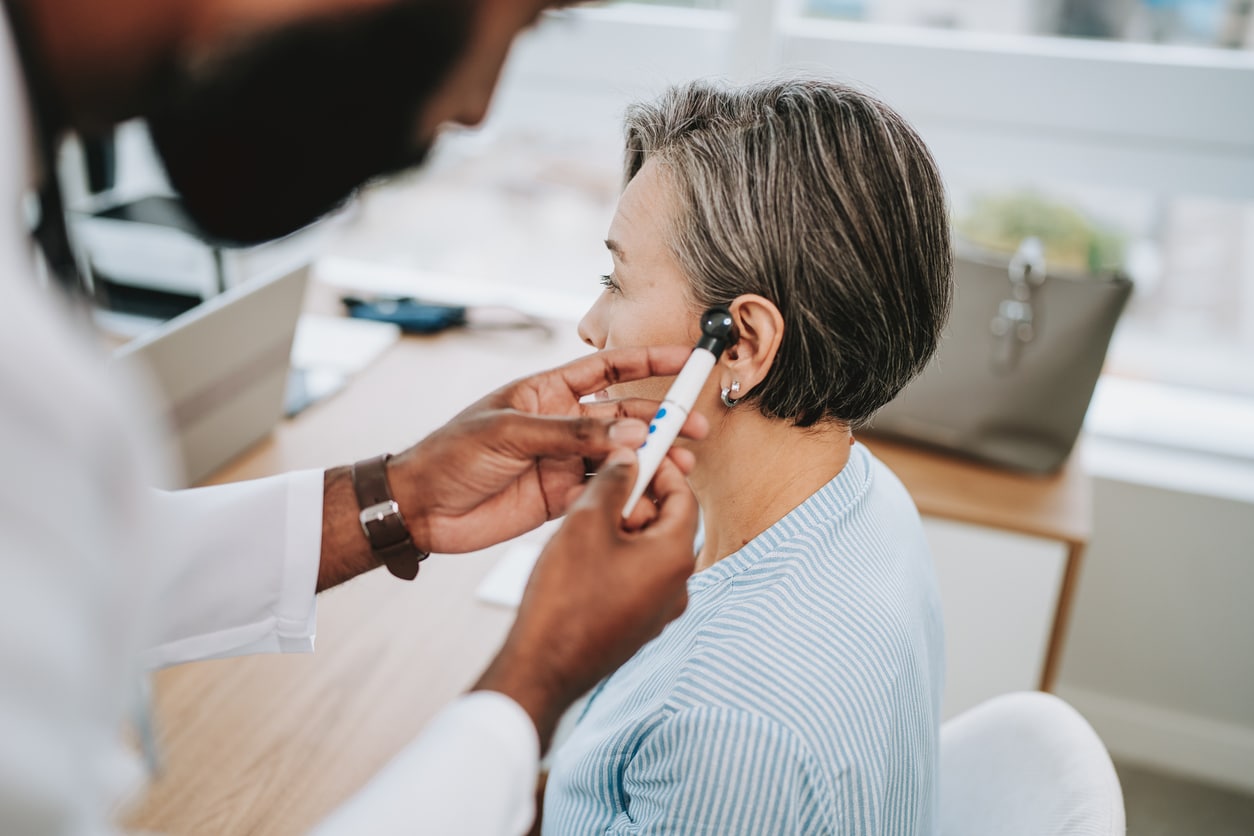Hearing loss falls into three camps: sensorineural (inner ear), conductive (middle and outer ear) and mixed (inner, middle and outer ear). While inner ear hearing loss is permanent, many conductive cases have treatable underlying conditions.
Let’s take a look at three common causes of conductive hearing loss and their treatments.
1. Ear Infections

An ear infection, or otitis media, arises when a virus or bacteria infects the area behind your eardrum. During an ear infection, your Eustachian tube, the thin canal connecting your middle ear to the back of the throat, is inflamed or clogged. Inflammation can lead to mucus buildup in the middle ear.
Excess mucus can block sound from passing through the middle ear, resulting in muffled hearing. Most ear infections resolve on their own, but some may require antibiotics. Hearing usually returns to normal within a few days or weeks. If muffled hearing persists longer or is paired with severe pain, consult your provider. In some cases, ear tubes may be necessary to drain fluid and prevent recurring infections.
2. Torn Eardrum
When sound waves enter your ear, they cause the eardrum to vibrate. These vibrations move through the middle and inner ear, where they’re converted into signals the brain interprets as sound.
A torn eardrum, also known as a ruptured or perforated eardrum, can disrupt its ability to vibrate properly, resulting in muffled hearing. You can think of the eardrum like a kite. If you’re flying a kite in Lincoln Park and the kite gets torn, it can’t catch wind, causing it to fall.
Most ruptured eardrums heal on their own, but severe cases may require a tympanoplasty. During a tympanoplasty, your provider will place a patch of your tissue or a medicated paper over the hole in your eardrum to promote healing and restore hearing.
3. Earwax Blockage
Most earwax moves out of your ear on its own. But if your ears produce excess wax or you spend a lot of time wearing headphones or hearing aids, your risk of earwax blockage increases.
If you believe earwax is causing your muffled hearing, don’t try to remove it alone. Cleaning your ears with cotton swabs can damage the ear canal, tear your eardrum and encourage greater wax production. Schedule a professional cleaning for safe removal.
When Should I Seek Treatment for Muffled Hearing?
If muffled hearing lasts longer than a week, you should schedule an appointment for a hearing test. Our specialists can conduct an ear exam and pure tone test to identify and address the underlying cause of your muffled hearing. Contact Tinnitus & Hearing Experts today to schedule your appointment.